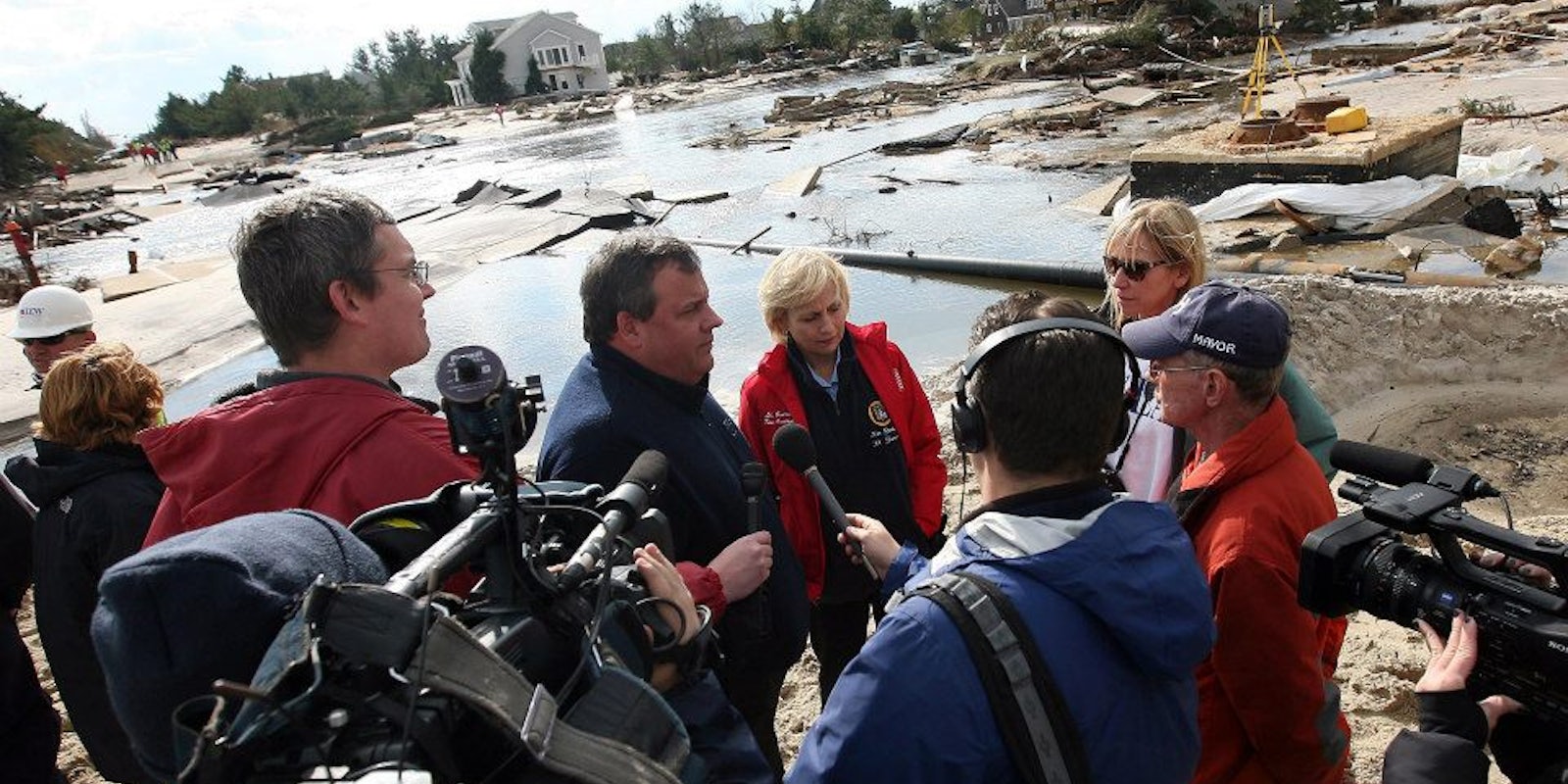Nearly a month after Superstorm Sandy ravaged its shores, New Jersey is still picking up the pieces—in more ways than one. This week, counties across the Garden State must verify results from the Nov. 6 election, but some have been delayed due to online voting, which was allowed for the first time ever following the historic and disastrous storm.
Due to confusion over how the email and fax vote worked, more than 10,000 ballots may be marked invalid, according to Politico. And the entire ordeal could deal a blow to those who think the future of democracy relies on online voting.
Just days before the November 6 election, Gov. Chris Christie announced that displaced residents would be able to vote via the Internet. Although officials said there could be problems, it would be better than the alternative of not having people vote at all.
If a displaced resident wanted an electronic ballot, she had to email her county clerk, who would then verify the voter’s identification before mailing a ballot. All votes had to be returned by Election Day.
The email and fax voting system has been used in the past by service members overseas, but this was the first time it was used by the general public.
“Despite the widespread damage Hurricane Sandy has caused, New Jersey is committed to working through the enormous obstacles before us to hold an open and transparent election befitting our state and the resiliency of its citizens,” Lt. Gov. Kim Guadagno said in a statement.
But problems arose almost immediately. On Election Day, county clerk email inboxes were jammed; one official even had electors send their ballot requests to his personal email. In many cases, officials could not keep up with the requests. Another issue: People didn’t know they still had to mail in their paper ballot after the election—a fact lost on some public and political officials.
The state elections board has asked the Attorney General for help in resolving that issue, but those ballots may be discarded.
Rutgers law professor Penny Venetis told Politico the issue could have a negative outcome regardless of the decision. If the state throws out the votes in question, it disenfranchises the voters. If the state keeps the ballots, it makes the government vulnerable to lawsuits.
The situation pokes holes in the idea that online voting could be the wave of the future. As pointed out by Princeton University computer science professor Andrew Appel, “email voting is the most insecure form of Internet voting” and is a “juicy target for hackers.”
While election officials were still wrapping up the 2012 election, politicians in New Jersey were already eyeing the 2013 race this week. On Tuesday, Christie announced that he would seek a second term as the Republican governor in the mostly Democratic state. Christie’s quick and tireless response to the storm has given him a significant boost in the polls in recent weeks, according to the Wall Street Journal.
His possible Democratic opponent? Social-media-savvy Newark mayor Cory Booker.
Image via Chris Christie/Facebook


